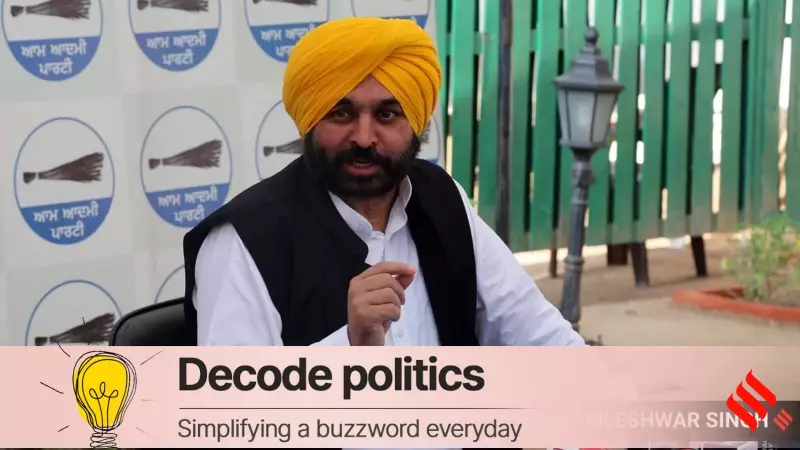
The political landscape of Punjab has been set ablaze following reports that the Central government is considering bringing Chandigarh under the ambit of Article 240 of the Constitution, a move that has triggered widespread condemnation across party lines in the state.
What Sparked the Political Firestorm?
The controversy erupted when news emerged about the proposed 131st Constitutional Amendment Bill that would place Chandigarh under Article 240, which empowers the President to make regulations and legislate directly for certain Union Territories. This technical change would fundamentally alter Chandigarh's constitutional status, making it a centrally administered UT rather than a shared capital between Punjab and Haryana.
Punjab Chief Minister Bhagwant Mann of the Aam Aadmi Party immediately termed the proposal a "draconian move" that threatened Punjab's historical claim over its capital city. The sentiment was echoed by leaders across the political spectrum, creating an unusual unity in opposition to the Centre's proposal.
Centre's Clarification and Political Backlash
Amid the growing backlash, the Union Home Ministry issued a crucial clarification on Sunday, November 23, 2025. In an official statement, the ministry stated that "government has no intention of introducing any Bill to this effect" in the upcoming Winter Session of Parliament.
The ministry emphasized that the proposal was merely under consideration to "simplify the Central Government's law-making process for the Union Territory of Chandigarh" and that no final decision had been taken. They assured stakeholders that any decision would only follow adequate consultations and would not alter Chandigarh's traditional arrangements with Punjab or Haryana.
Despite this clarification, political reactions continued to pour in. Shiromani Akali Dal (SAD) chief Sukhbir Singh Badal called the proposal an "assault on Punjab's rights" and federal principles, while Congress Leader of the Opposition Amrinder Singh Raja Warring warned of serious repercussions if Chandigarh was "snatched" from Punjab.
Historical Significance and Emotional Connect
The intensity of Punjab's reaction stems from Chandigarh's deep historical and emotional significance for the state. After Partition when Lahore, Punjab's earlier capital, went to Pakistan, Chandigarh was created as a replacement capital. The Capital of Punjab (Development and Regulation) Act, 1952 formally defines Chandigarh as Punjab's capital.
Following the reorganization of states in 1966 when Haryana was carved out, Chandigarh became the joint capital of both states and was declared a Union Territory. The property distribution was maintained in a 60:40 ratio between Punjab and Haryana, with the Punjab Governor serving as the administrator of Chandigarh - an arrangement that has continued for nearly six decades.
AAP spokesperson Neel Garg perfectly captured the sentiment, describing the proposed change as "a technical change, but a deeply political and emotional one." The Punjab Governor's long-standing role as Chandigarh's administrator has been seen as symbolic of Punjab's primacy over the city.
BJP's Dilemma and Broader Federal Tensions
The controversy has placed the BJP in a particularly challenging position in Punjab. State BJP chief Sunil Jakhar made his opposition clear in a social media post, stating that "Chandigarh is an integral part of Punjab, and the Punjab BJP stands firmly with the interests of the state." He emphasized that as Punjabis, "Punjab always comes first" for them, indicating the party's need to balance central directives with state sentiments.
This incident is not isolated but part of a pattern of recent flashpoints between the Centre and Punjab. In October, the Centre's proposal to dissolve the 59-year-old Senate of Panjab University sparked massive protests, with critics calling it "saffronisation" and a bid to centralize control over the institution. The move was eventually put on hold following widespread opposition.
Additionally, the long-standing water sharing dispute with Haryana flared up in May when Haryana sought additional water from the Bhakra dam, leading to confrontations and the Centre's deployment of security forces at the dam site - a move strongly opposed by Punjab.
As the Winter Session of Parliament approaches, all eyes remain on how this sensitive issue evolves and whether the Centre's assurances will be enough to calm the political waters in Punjab, where the ownership of Chandigarh remains not just an administrative matter but a question of regional identity and historical justice.






